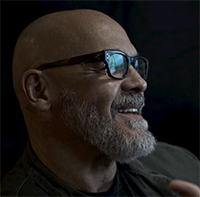The Cuban Dividend: A Refugee’s Perspective
June 26, 2025

By Tony Hernandez
I arrived in the United States in the fall of 1967, a child of exile brought over by my family on one of the now-historic Freedom Flights. Like so many others fleeing Fidel Castro’s regime, we came not in search of comfort, but of freedom. We left behind everything we had ever known—our home, our friends, our sense of certainty—in exchange for the chance to begin again in a country that, even then, represented possibility.
We were part of the great Cuban exodus of the 1960s, a wave of political refugees who came by the tens of thousands. Many of us had little more than hope. But what we found here—through the kindness of the American people, churches, neighbors, and institutions—allowed us to build not just new lives, but new legacies.
More than five decades later, I look at the contributions Cuban Americans have made to this country, and I see what can happen when a nation chooses to welcome the displaced with dignity.
Today, Cuban Americans are among the most economically established Latino subgroups in the United States. In Miami-Dade County, for example, Cuban-owned businesses account for more than 60% of all Hispanic-owned enterprises. Many of the institutions that turned Miami into a global city—banks, hospitals, media companies, universities—were built or led by Cuban exiles and their children.
People like Paul Cejas and Mike Fernandez, who created multibillion-dollar healthcare empires. Or the Alarcón family, who founded Spanish Broadcasting System and transformed it into one of the largest minority-owned media companies in America.
Our influence has extended into corporate America at the highest levels. Roberto Goizueta, a fellow refugee, rose to become Chairman and CEO of The Coca-Cola Company, taking its market value from $4 billion to over $150 billion. Ralph de la Vega, who came alone as a boy, became President and CEO of AT&T Mobility and played a key role in the launch of the iPhone.
And in the world of multicultural advertising, Cuban Americans were there at the beginning—literally helping invent the field:
– Rafael and Alicia Conill founded Conill Advertising, one of the first Hispanic ad agencies in the U.S.
– Pedro Font and Luis Vaamonde launched Font & Vaamonde, setting early creative standards for Spanish-language campaigns.
– Tere Zubizarreta built Zubi Advertising into an industry powerhouse.
– Daisy Expósito-Ulla, who led The Bravo Group before founding her own agency, d expósito & Partners, remains a visionary voice in inclusive marketing.
– And Jorge Ulla, with his deep storytelling sensibility, redefined how Latino identity could be expressed through media and advertising.
These stories aren’t anomalies. They are the dividends of a uniquely generous immigration policy that Cubans benefited from starting in the mid-1960s. The Cuban Adjustment Act of 1966 provided us with a legal pathway to permanent residency. Refugee resettlement programs gave us shelter, schooling, and structure. And perhaps most importantly, we were welcomed not just as immigrants, but as political exiles—offered a place in America’s Cold War narrative and, with it, an opportunity to contribute.
Faith-based organizations like Catholic Charities helped families like mine resettle. Volunteers taught us English. Neighbors gave us secondhand furniture and third chances. And what did we do with that support? We built. We worked. We created. We gave back.
Public service has been part of that legacy too. Ileana Ros-Lehtinen, the first Latina elected to the U.S. Congress. Carlos Giménez, U.S. Representative and former mayor of Miami-Dade County. And countless others who’ve served in school boards, city halls, and nonprofit boards across the country.
As our country debates how to respond to new refugee waves from places like Venezuela, Haiti, Ukraine, and Central America, I offer our experience as a guide. Yes, refugees may arrive in need. But they also arrive with grit, skills, and a hunger for opportunity. When given the tools to succeed, they don’t just integrate—they elevate.
I know. My family and I have lived it.
The story of Cuban refugees in America shouldn’t be seen as an exception—but as a model. When you welcome those in search of freedom, you don’t just restore lives. You renew your nation.
That’s the Cuban dividend.
And in a time marked by fear and polarization, it’s a reminder that the real risk lies not in opening our doors—but in forgetting what happens when we do.




























